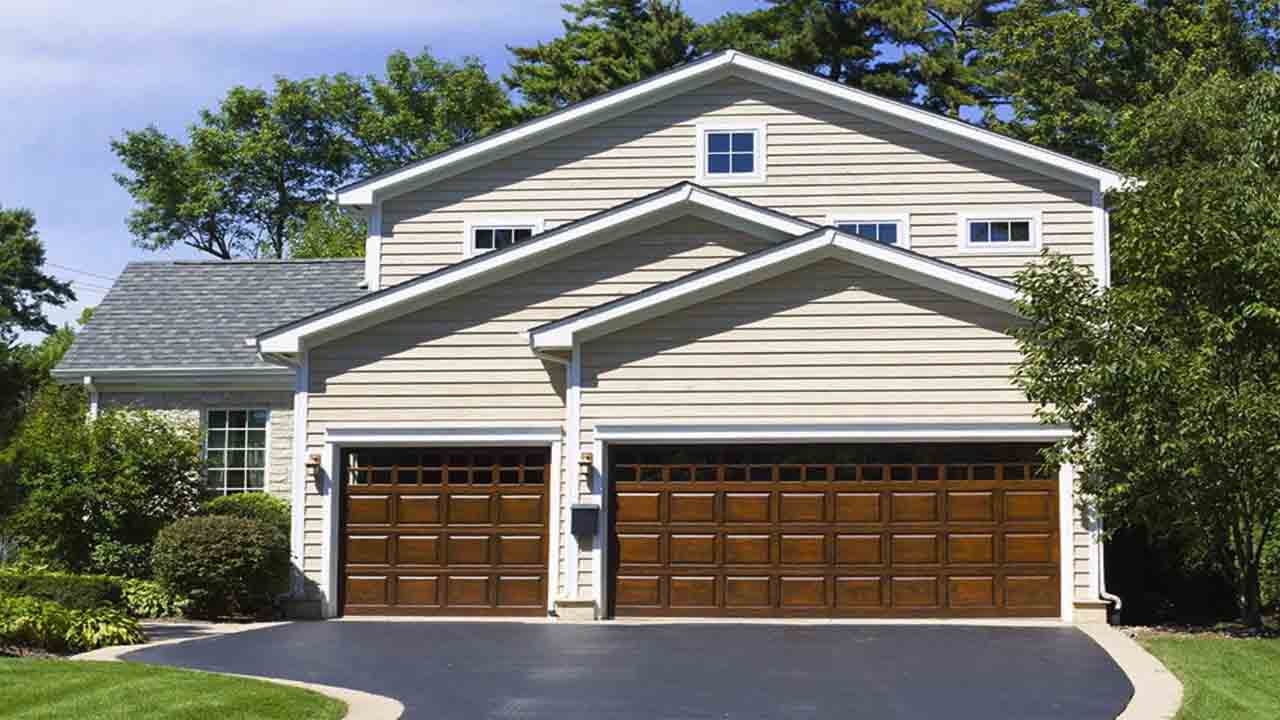Your garage door is one of the most frequently used components of your home, offering convenience, security, and aesthetic appeal. However, like any mechanical system, it requires regular maintenance to function properly. Neglecting this essential upkeep can lead to costly repairs, compromised security, and even safety hazards. We’ll cover everything you need to know about residential garage door maintenance, including the benefits of maintenance, common issues, DIY tips, and when to call a professional.
Why Residential Garage Door Maintenance Matters
Ensures Safety
A malfunctioning garage door can pose significant safety risks. Regular maintenance ensures that the door operates smoothly and minimizes the risk of accidents, such as the door unexpectedly falling or components breaking.
Prolongs Lifespan
Routine checks and servicing can extend the life of your garage door by preventing wear and tear from escalating into major issues.
Improves Performance
A well-maintained garage door operates quietly and efficiently, offering a hassle-free experience for homeowners.
Boosts Property Value
A functional and visually appealing garage door enhances curb appeal and can increase your property’s value.
Common Garage Door Issues
Before diving into maintenance tips, it’s essential to understand the common problems that garage doors face:
Noisy Operation
Squeaking, grinding, or rattling noises often indicate a lack of lubrication or worn-out parts.
Misaligned Tracks
The garage door may fail to open or close smoothly if the tracks are bent or out of alignment.
Broken Springs
Torsion or extension springs bear the weight of the door. A broken spring can render the door inoperable and may be dangerous to repair without professional help.
Worn Cables
Frayed or damaged cables can affect the door’s movement and lead to safety hazards.
Unresponsive Opener
Faulty remotes, sensors, or motor issues can cause the door to stop responding to commands.
Essential Residential Garage Door Maintenance Tips
Inspect and Tighten Hardware
Garage doors move along tracks, which are secured with bolts and brackets. Over time, these components can loosen due to constant use. Regularly inspect and tighten all hardware to prevent misalignment or operational issues.
Lubricate Moving Parts
Lubrication reduces friction and ensures smooth operation. Focus on:
- Rollers
- Hinges
- Springs
- Tracks Use a silicone-based lubricant or a light household oil to keep these components running smoothly.
Check and Replace Weatherstripping
Weatherstripping along the bottom of the garage door helps seal out drafts, water, and pests. Inspect it regularly for cracks or wear and replace it if necessary.
Test the Door Balance
An imbalanced door can strain the opener and other components. To test balance:
- Disconnect the opener by pulling the release handle.
- Manually lift the door halfway. If it doesn’t stay in place, the springs may need adjustment.
Inspect and Clean Tracks
Dirt and debris can accumulate in the tracks, hindering smooth movement. Wipe the tracks clean and check for dents or misalignments.
Test Safety Features
Modern garage doors come with safety mechanisms like auto-reverse and photo-eye sensors. Test these features regularly:
- Place an object in the door’s path to see if it reverses upon contact.
- Wave an object in front of the photo-eye sensors to ensure they detect movement.
Replace Batteries in Remotes
Unresponsive remotes often result from weak or dead batteries. Keep spare batteries on hand and replace them as needed.
Inspect Springs and Cables
While you shouldn’t attempt to repair springs or cables yourself, regular visual inspections can help identify fraying, rust, or other signs of wear. Call a professional if you notice any issues.
When to Call a Professional
Some maintenance tasks are best left to professionals due to their complexity or safety concerns. Call a technician if you encounter:
Broken Springs
Replacing springs requires specialized tools and expertise to avoid injuries.
Severely Damaged Tracks
Bent or misaligned tracks can cause significant operational issues and may require professional realignment or replacement.
Opener Malfunctions
Motor issues or electronic failures in the opener often need professional diagnosis and repair.
Extensive Structural Damage
If your garage door has dents, warping, or other structural damage, a professional can assess whether repair or replacement is necessary.
Benefits of Hiring a Professional
Expertise and Experience
Professionals have the training to diagnose and fix complex issues quickly and efficiently.
Safety Assurance
Handling heavy garage doors and high-tension springs can be hazardous. Professionals ensure repairs are conducted safely.
Long-Term Savings
Proper repairs prevent recurring issues, saving you money in the long run.
Seasonal Garage Door Maintenance Checklist
Spring and Summer
- Inspect and lubricate all moving parts.
- Check to weatherstrip and replace if worn.
- Clean the door’s surface and repaint if needed to prevent rust.
Fall and Winter
- Test the door’s balance and safety features.
- Inspect tracks for debris or damage.
- Ensure the weatherstripping is intact to prevent cold drafts.
DIY vs. Professional Maintenance
While many maintenance tasks can be handled by homeowners, some repairs and inspections require professional expertise. Here’s a comparison:
TaskDIYProfessional
Tightening hardware Yes No
Lubricating parts Yes No
Testing balance Yes Yes
Replacing springs No Yes
Fixing opener issues No Yes
Repairing structural damage No Yes
The Cost of Garage Door Maintenance
The cost of garage door maintenance depends on the extent of the service. Typical expenses include:
- DIY Supplies: $20-$50 for lubricants, weatherstripping, and cleaning tools.
- Professional Tune-Up: $75-$150 for a routine inspection and lubrication.
- Major Repairs: $200-$500 for spring or opener repairs.
Regular maintenance reduces the likelihood of expensive repairs and prolongs the door’s lifespan, making it a worthwhile investment.
Final Thoughts
Residential Garage Door Maintenance is essential for safety, functionality, and longevity. By following a regular maintenance routine and addressing issues promptly, you can avoid costly repairs and ensure your garage door remains in top condition.
While some tasks are simple enough for homeowners, don’t hesitate to call a professional for complex repairs or inspections. A well-maintained garage door not only enhances the convenience of your daily life but also boosts your home’s curb appeal and value.

